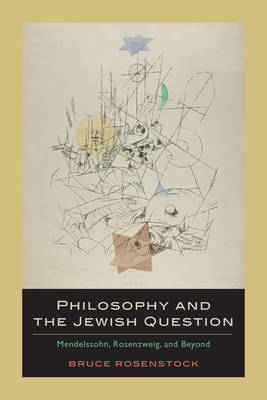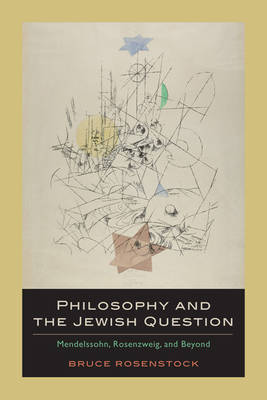
- Retrait gratuit dans votre magasin Club
- 7.000.000 titres dans notre catalogue
- Payer en toute sécurité
- Toujours un magasin près de chez vous
- Retrait gratuit dans votre magasin Club
- 7.000.000 titres dans notre catalogue
- Payer en toute sécurité
- Toujours un magasin près de chez vous
Philosophy and the Jewish Question
Mendelssohn, Rosenzweig, and Beyond
Bruce Rosenstock
Livre relié | Anglais
128,95 €
+ 257 points
Description
Drawing together two critical moments in the history of European Jewry-its entrance as a participant in the Enlightenment project of religious and political reform and its involvement in the traumatic upheavals brought on by the Great War-this book offers a reappraisal of the intersection of culture, politics, theology, and philosophy in the modern world through the lens of two of the most important thinkers of their day, Moses Mendelssohn and Franz Rosenzweig. Their vision of the place of the Jewish people not only within German society but also within the unfolding history of humankind as a whole challenged the reigning cultural assumptions of the day and opened new ways of thinking about reason, language, politics, and the sources of ethical obligation. In making the Jewish questionserve as a way of reflecting upon the human questionof how we can live together in acknowledgment of our finitude, our otherness, and our shared hope for a more just future, Mendelssohn and Rosenzweig modeled a way of doing philosophy as an engaged intervention in the most pressing existential issues confronting us all.In the final chapters of the book, the path beyond Mendelssohn and Rosenzweig is traced out in the work of Hannah Arendt and Stanley Cavell. In light of Arendt's and Cavell's reflections about the foundations of democratic sociality, Rosenstock offers a portrait of an immigrant Rosenzweigjoined in conversation with his American cousins.
Spécifications
Parties prenantes
- Auteur(s) :
- Editeur:
Contenu
- Nombre de pages :
- 336
- Langue:
- Anglais
Caractéristiques
- EAN:
- 9780823231294
- Date de parution :
- 02-12-09
- Format:
- Livre relié
- Format numérique:
- Genaaid
- Dimensions :
- 157 mm x 229 mm
- Poids :
- 703 g







